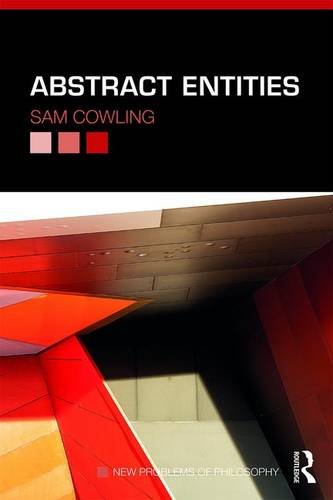

Most ebook files are in PDF format, so you can easily read them using various software such as Foxit Reader or directly on the Google Chrome browser.
Some ebook files are released by publishers in other formats such as .awz, .mobi, .epub, .fb2, etc. You may need to install specific software to read these formats on mobile/PC, such as Calibre.
Please read the tutorial at this link. https://ebooknice.com/page/post?id=faq
We offer FREE conversion to the popular formats you request; however, this may take some time. Therefore, right after payment, please email us, and we will try to provide the service as quickly as possible.
For some exceptional file formats or broken links (if any), please refrain from opening any disputes. Instead, email us first, and we will try to assist within a maximum of 6 hours.
EbookNice Team

Status:
Available0.0
0 reviewsThink of a number, any number, or properties like fragility and humanity. These and other abstract entities are radically different from concrete entities like electrons and elbows. While concrete entities are located in space and time, have causes and effects, and are known through empirical means, abstract entities like meanings and possibilities are remarkably different. They seem to be immutable and imperceptible and to exist "outside" of space and time.
This book provides a comprehensive critical assessment of the problems raised by abstract entities and the debates about existence, truth, and knowledge that surround them. It sets out the key issues that inform the metaphysical disagreement between platonists who accept abstract entities and nominalists who deny abstract entities exist. Beginning with the essentials of the platonist–nominalist debate, it explores the key arguments and issues informing the contemporary debate over abstract reality:
Including chapter summaries, annotated further reading, and a glossary, Abstract Entities is essential reading for anyone seeking a clear and authoritative introduction to the problems raised by abstract entities.